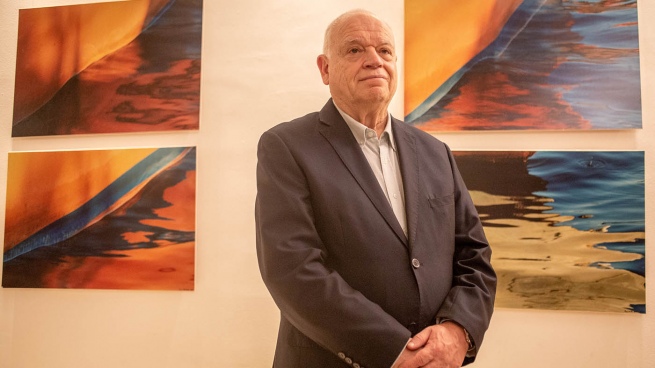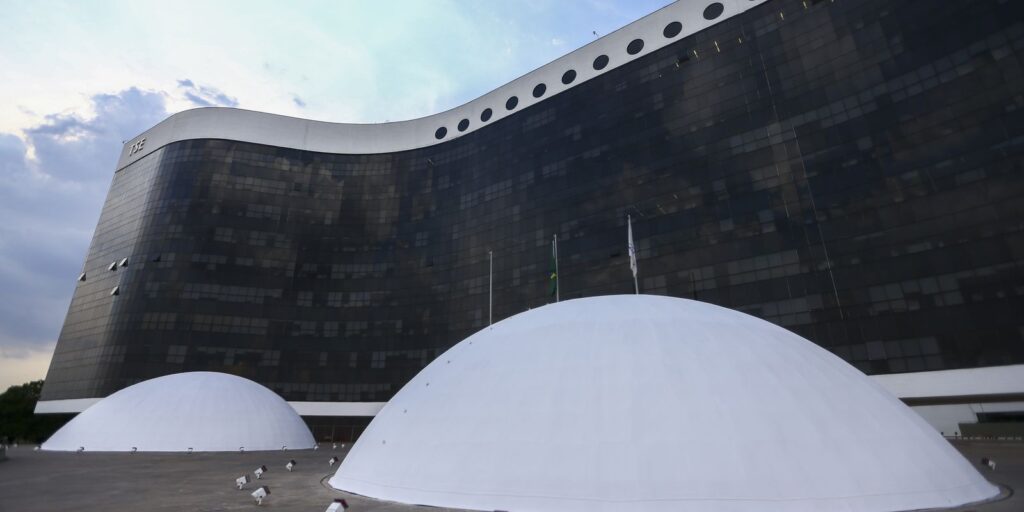The president of the Inter-American Court of Human Rights (IACHR Court), Ricardo Pérez Manrique, assured that the pandemic demonstrated the need to strengthen multilateralism, warned that “the tendency to certain exacerbated nationalisms led to the degradation of global governance” and stressed that it is “essential that violent speeches do not prosper” in the political debate.
“Traditional representation is in crisis and is being replaced by ways of creating consensus and coming to political power that generate tensions,” the Uruguayan jurist stressed in an interview with Télam.who since January has chaired the court of which he has been a member since 2018.
Passing through Mar del Plata, where he received the title of Doctor Honoris Causa from the National University of the city (Unmdp), Pérez Manrique (75) stressed that “acts of violence are not admissible in a democratic society”and considered it necessary to achieve “minimum agreements” to avoid violent messages on the networks “without generating an effect of censorship”.
Télam: Are cooperation and multilateralism in crisis after the pandemic?
Perez Manrique: We are living in a world that suffered attacks from different political positions that questioned multilateralism and sought to return to the line that States alone could. The coronavirus showed us, for example, that if we didn’t all work together to get the vaccine, we weren’t going to be able to beat it. And today we also have a war that shows us that if there is no multilateralism to guarantee peace, we return to the past, due to greed or thirst for power or to obtain certain advantages over other States, which lead to solutions that are very difficult to solve, and above all they generate enormous suffering. This tendency to certain exacerbated nationalisms is the degradation of global governance.
-Is the democratic consensus that was reached after the departure of the dictatorships in the region damaged?
-I think that if we look at the region we are complicated. There is a tendency to permanent disagreement. This has to do with the new ways we have of communicating with each other, which I think can lead to a certain cancellation of the debate, because each one puts their opinion on social networks thinking that they are the owner of the truth, and there they generate blocks, divisions. There is a problem for democracies that is the crisis of the concept of representation as it was classically conceived. There is a divorce between democratic institutions and what people aspire to be true democratic functioning. One of the great challenges of the system is to see how this participation is articulated, because the crisis of representation has swept away the traditional political parties.

-And who occupies that place?
– Representation has been replaced by other forms of consensus building and reaching political power that generate tensions.
-Are you concerned about the return of violence to political discussion?
-Yes, because it is precisely the problem of the loss of authentically democratic references. There it becomes essential that violent speeches do not prosper, and if they prosper, they should be isolated by the rest of society. And I am not talking about repression, but that they should be encapsulated, so that they do not continue to grow. I believe that we are experiencing a moment of transition, with factors such as new communication systems or production scales that sometimes do not understand how they work.
-How is that violence encapsulated and what role does justice play?
-First, a society has a basic rule of relationship, which is the Constitution. And all government bodies and the justice system must adjust. And it must be made clear that acts of violence are not permissible in a democratic society.
-How does the debate on the so-called hate speech fit in in this sense?
-The issue of hate speech must be analyzed in a very specific way, because the American Convention (on Human Rights) itself says that there are speeches that are not protected by human rights. And those are, essentially, those violent speeches or those that call for violence. Article 13 says that when speech is violent and incites violence it is considered hate speech and not protected. The risk we run is that, if this is not well defined, anything can be considered hate speech, and that can mean a strong limitation on freedom of expression. We must define what we are talking about and how far the repression reaches. Because there are many authoritarian governments that are appealing to this issue to silence dissenting voices.

-Has self-regulation failed in social networks?
-The problem is very complex. For example, in matters of the traditional press, I believe that self-regulation worked in general because codes of journalistic ethics and responsible source management appeared. Due to the complexity of the networks and their operators, nobody knows the address of these global players, who to identify, who to notify. On the other hand, we have the risks that a national regulation implies that may be excessively restrictive, and that may generate an effect of censorship for the internal debate. This requires a dialogue between users and operators, and I believe that journalism has a very important role in this. Minimum agreements are necessary, basic principles that build consensus so that this ceases to be seen as a business and is addressed as an issue of freedom of expression, that there are no prohibited speeches and that everyone can participate in a peaceful manner. There is a UN rule, which is that the rules that govern us in the real world have to govern us in the virtual one. It is the great challenge.
-He warned on several occasions about the “judicialization of politics and the politicization of justice.” Could you elaborate on this issue?
-The reflection has to do with the idea of democracy as a system in which differences are resolved peacefully. Politics, which is the realm of public debate, should be the realm in which debate takes place and issues are eventually resolved in a certain way. If it becomes a center of confrontation that is not capable of solving its own problems, everything ends up being prosecuted. And cases that have a very high political voltage are placed in the hands of the judges. And this makes their task, which should focus on the application of the law, more difficult. And sometimes the tensions come, the pressures. That is what I see as negative: refer everything that is political to Justice. Now, if crimes are committed in the exercise of the public function, undoubtedly it must be done. But understand that judges do not exercise government functions.
















